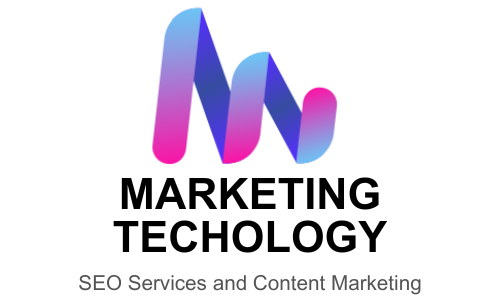In the ever-evolving world of digital marketing, businesses and brands constantly look for effective ways to connect with their audience. Two of the most popular strategies in this realm are content marketing and social media marketing. While they may seem similar on the surface, they serve different purposes and yield unique results. In this article, we will explore content marketing vs social media marketing, compare their advantages, and help you determine which approach is most effective for your business.
What Is Content Marketing?
Content marketing is a strategic approach to marketing that involves creating, publishing, and distributing valuable, relevant, and consistent content to attract and engage a target audience. The goal of content marketing is to drive profitable customer action, such as increased sales, brand awareness, or customer loyalty.
Content marketing includes various formats, such as blog posts, videos, infographics, podcasts, and more. It focuses on delivering useful information to your audience that solves their problems or educates them in some way. The core of content marketing is to build trust and credibility, positioning your brand as a thought leader in your industry.
Some examples of content marketing include:
- Blog posts and articles: In-depth, informative pieces that help educate or solve problems for your audience.
- Ebooks and whitepapers: Detailed resources that showcase your expertise in a specific area.
- Videos and podcasts: Engaging multimedia content that helps communicate your message in a more digestible format.
- Infographics and guides: Visual content that simplifies complex information for easy understanding.

What Is Social Media Marketing?
Social media marketing, on the other hand, is the use of social media platforms like Facebook, Instagram, Twitter, LinkedIn, and others to promote a brand, product, or service. This strategy focuses on creating content that is specifically tailored for social media platforms and engaging with users to build relationships and drive brand awareness.
Unlike content marketing, which often focuses on long-form, evergreen content, social media marketing is more about real-time interaction and engagement. Social media allows businesses to connect with their audience on a more personal level and build an active online community.
Some examples of social media marketing include:
- Social media posts: Sharing images, videos, text, and other content on platforms like Instagram, Facebook, and LinkedIn.
- Paid social media ads: Promoting products or services through paid ads on platforms like Facebook and Instagram.
- Influencer partnerships: Collaborating with influencers who have a large following to promote your products or services.
- Social media stories: Temporary posts that can be used to showcase behind-the-scenes content, promotions, or product updates.
Advantages of Content Marketing

Content marketing offers a range of advantages that can help businesses establish a strong presence in their industry. Here are some key benefits:
1. Long-Term Results
One of the biggest advantages of content marketing is that it provides long-term value. High-quality content can continue to drive traffic and generate leads for months or even years after it is published. This is especially true for blog posts, guides, and other evergreen content.
2. SEO Benefits
Content marketing is a powerful tool for improving your search engine rankings. By creating informative, keyword-optimized content, you can increase your chances of ranking higher in search engine results pages (SERPs), driving organic traffic to your website.
3. Authority Building
Consistently publishing valuable content helps establish your brand as an authority in your niche. Over time, this can lead to increased brand trust and credibility, which are essential for converting leads into customers.
4. Lead Generation
Quality content can act as a lead magnet, attracting potential customers to your website. By offering valuable resources (such as ebooks, webinars, or downloadable guides), you can encourage users to exchange their contact information and enter your sales funnel.
Advantages of Using Social Media Marketing

While content marketing focuses on providing long-form, detailed content, social media marketing allows brands to engage with their audience in real-time and build relationships on platforms where people are already active. Here are some of the advantages of social media marketing:
1. Real-Time Engagement
Social media allows businesses to interact with their audience immediately. Whether it’s answering a customer inquiry, responding to feedback, or participating in trending conversations, social media provides an opportunity for real-time communication.
2. Wider Reach
With billions of active users on social media platforms, businesses can reach a large, diverse audience. Through organic posts, paid ads, and influencer partnerships, social media offers an extensive reach that is difficult to achieve through traditional methods.
3. Brand Personality
Social media is a great platform for showcasing your brand’s personality. You can engage with your audience on a more personal level by sharing behind-the-scenes content, user-generated content, and real-time updates, helping you build stronger connections with your community.
4. Cost-Effective
Social media marketing can be highly cost-effective, especially when compared to traditional advertising. Organic posts, along with targeted ads, can yield significant results for relatively low costs.
The Difference Between Content Marketing and Social Media Marketing

Although both content marketing and social media marketing aim to engage and convert an audience, they differ in their approach and execution. Here are the key differences between content marketing vs social media marketing:
Focus and Goal
Content marketing focuses on providing valuable, evergreen content that educates, informs, or entertains. Its goal is to build trust over time and drive long-term results, such as SEO traffic and lead generation.
Social media marketing focuses on creating shareable, engaging content tailored for specific social media platforms. It aims to build brand awareness, foster community engagement, and encourage immediate action.
Type of Content
Content marketing includes long-form content such as blog posts, ebooks, guides, and videos that provide in-depth value.
Social media marketing focuses on short-form, highly visual content such as images, memes, posts, and stories that grab attention quickly.
Longevity
Content marketing has a longer lifespan. Blog posts, videos, and other resources continue to generate traffic and leads long after they are published.
Social media marketing tends to have a shorter lifespan. Posts and stories on social media platforms have a quick shelf life, often disappearing in just a few hours or days.
Audience Interaction
Content marketing tends to attract an audience through search engine queries, providing in-depth answers or resources to solve problems.
Social media marketing focuses more on real-time interaction, fostering a community atmosphere and engaging users directly on the platform.
Content Marketing and Social Media Marketing: Which Is Better and Most Effective?
So, which is better—content marketing or social media marketing? The answer depends on your business goals and marketing strategy.
If your goal is to establish long-term authority, build trust, and improve your SEO ranking, content marketing is likely the better option. On the other hand, if you want to increase brand awareness, engage directly with your audience, and drive immediate action, social media marketing may be more effective.
In many cases, the most successful marketing strategy is a combination of both. Social media vs content marketing is not an either/or choice. By integrating the two, you can use content marketing to create valuable, evergreen content that attracts organic traffic and drives leads, while using social media marketing to promote that content, engage with your audience, and build a community around your brand.
Takeaway
In conclusion, both content marketing and social media marketing are vital components of a comprehensive marketing strategy. While they serve different purposes, they can work in tandem to help you achieve your business objectives. Whether you choose content marketing vs social media marketing depends on your specific needs, but integrating both strategies will undoubtedly yield the best results.
If you’re looking to enhance your online presence, Marketing Technology offers professional SEO services and content marketing strategies that can help you drive traffic, engage your audience, and grow your business.
Frequently Asked Questions
Do I need a blog for content marketing?
Yes, a blog is one of the most effective tools for content marketing. It allows you to create valuable, long-form content that can drive organic traffic through search engines and establish your brand as an authority in your field.
Can I do social media marketing without content marketing?
While it’s possible to engage in social media marketing without content marketing, combining the two provides a more comprehensive strategy. Social media marketing can help amplify your content, while content marketing gives your social media presence substance and value.
Is social media marketing just posting content?
No, social media marketing goes beyond simply posting content. It involves creating strategic posts, engaging with your audience, running paid ads, and building relationships with your community. It’s about fostering a two-way conversation, not just broadcasting content.





